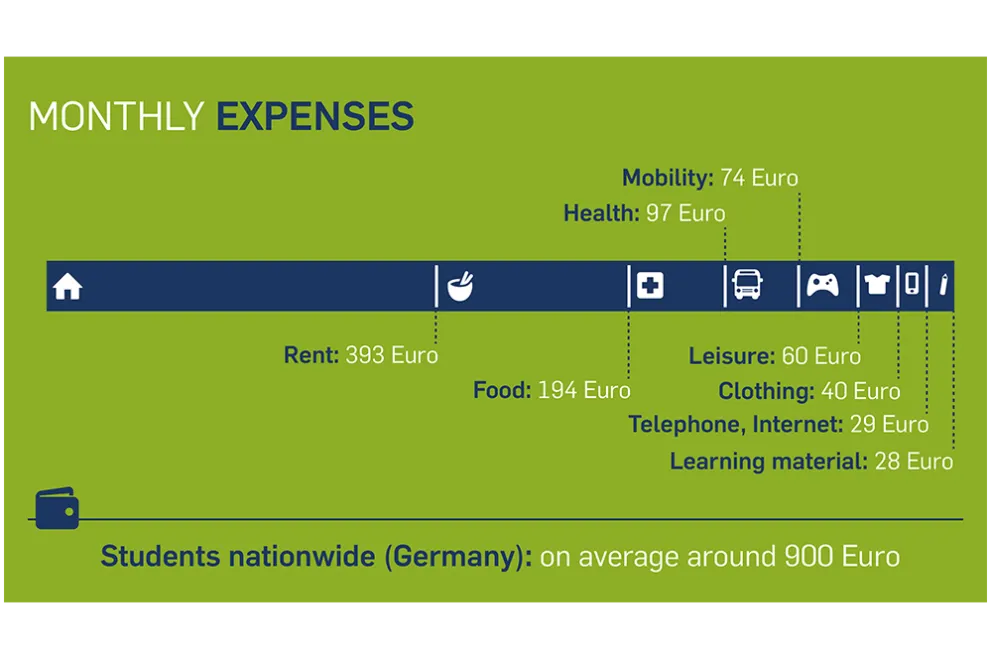International students should get detailed information on specific funding options available to them, the existing terms and regulations for applying and renewing student resident permits as well as part-time jobs.
How Much Does It Cost to Study at RUB?
For most students, the question of money is a continuous companion during their entire degree course. The most important question for most prospective students is: How much money will I need to pay my way through university?
Deutsches Studierendenwerk (German National Association for Student Affairs) routinely compiles surveys on the average costs of living for students in Germany. The 22nd social survey in 2021 showed that students, who do not live with their parents, have expenses of averagely 900 euros per month.
Rent and Costs of Living
While pursuing your degree, you will have to pay for accommodation, food, learning material, and your recreational activities. The amount you will have to pay will vary a lot – depending on your living standard, location of your university, and degree course.
The costs of living can naturally vary a lot. Bochum is slightly below average because of the comparatively affordable rents – for example in low-cost student halls. The average monthly expenses for rent were 377 euros for students in Bochum in 2021.
Payable each Semester: Social Insurance Contribution
Even though NRW has abolished tutorial fees, studying at university is not completely free of charge. All students enrolled in a degree course must pay the social insurance contribution every semester. It is a mandatory fee that is determined before the start of each semester and that is payable during re-registration.
The social insurance contribution includes fees for the academic services office (Akademisches Förderungswerk) and the RUB student union as well as for the semester ticket and NRW-Ticket and the theatre flatrate for Schauspielhaus.

